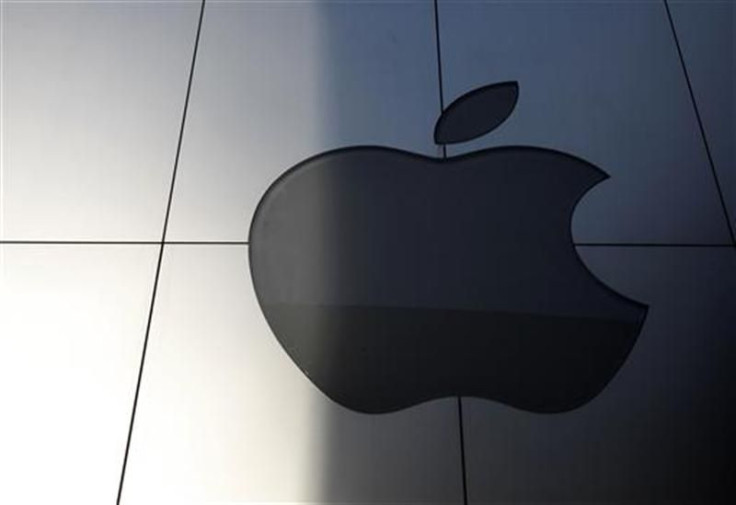Apple reveals supply chain, details conditions

(Reuters) -- Apple revealed its closely guarded list of global suppliers for the first time and vowed to deal with worker abuses, hoping to deflect criticism it was turning a blind eye to cases of poor working conditions in a mostly Asian supply chain.
The dramatic and unprecedented step -- unveiling the names of 156 companies that represent 97 percent of the company's supply chain -- was an unusual move in an industry that relies heavily on foreign component suppliers to drive margins.
It is rarer still for a notoriously secretive company, underscoring speculation that new Chief Executive Tim Cook has ushered in an era of greater transparency. Predecessor Steve Jobs, who died in October, kept an iron grip on the internal workings of the company he founded and turned into the world's largest technology company.
The tell-all on Friday surprised many in the industry and on Wall Street. Experts say rivals and investors pay consultants for exactly this type of valuable intelligence.
Apple's list is the culmination of internal probes into its supply chain, spanning hundreds of audits over years and high-profile firms from Foxconn or Hon Hai Precision Industry Co Ltd to Samsung. Foxconn in particular has dragged Apple into headlines after a spate of worker suicides raised questions about conditions at its Chinese plants.
Apple said it found six active and 13 historical cases of underage labor at some component suppliers, but none at its final-assembly partners.
With every year, we expand our program, we go deeper in our supply chain, we make it harder to comply, Cook told Reuters in an interview. All of this means that workers will be treated better and better with each passing year. It's not something we feel like we have done what we can do, much reamins to be done.
The audit conducted by Apple of suppliers found a number of violations, among them breaches in pay, benefits and environmental practices in plants in China, which figured prominently throughout the 500-page report Apple issued.
Other violations unearthed included dumping wastewater onto a neighboring farm, using machines without safeguards, testing workers for pregnancy and falsifying pay records.
Apple did not identify the facilities where it found violations.
ABOLISHING UNDERAGE LABOR
Apple said it conducted 229 audits last year, representing an 80 percent increase over 2010. From 2007 to 2010, the company
conducted only 288 total audits. It looked at all levels of its supply chain, including final assembly and component suppliers.
I would like to make a significant improvement in the overtime area. I would like to totally eliminate every case of underage employment, said Cook. We have done that in all of our final assembly. As we go deeper into the supply chain, we found that age verification system isn't sophisticated enough. This is something we feel very strongly about and we want to eliminate totally.
Apple said it will grant access to an independent auditing team from the Fair Labor Association, in its continuing effort to overcome criticism regarding working conditions at its supply factories. It also terminated business with one unidentified supplier and was correcting the practices of another.
Both were repeat offenders, the report said.
Apple's audit found out that only 38 percent of suppliers adhered to its code of a maximum work week of 60 hours. Also, foreign contract workers in 15 facilities paid excessive recruitment fees to labor agencies, the report said.
Apple leans heavily on its suppliers, and often gets first priority in production and delivery. Its influence might have helped make possible its years-long audits. And it will prove crucial as Apple prepares to drive its producers to begin work on new products in 2012, starting with the iPad 3 expected in the first quarter.
MODEL CORPORATE CITIZEN?
Labor experts said Apple's efforts may spur other corporations to seek to address labor conditions within an often murky and foreign production chain - a continual source of outrage both at home and elsewhere in the developed world.
Apple has made major efforts to improve and communicate its policies following high-profile labor problems at its foreign suppliers and manufacturers, including at Foxconn.
The suicides at the plants associated with Apple cast a harsh spotlight on what critics dubbed a militaristic culture that pushed workers to the brink to meet unceasing demand for the company. In response, Apple stepped up the number of facilities it audits, to ensure they meet its code of conduct.
The increased scope of Apple's report this year follows the enactment of a new law in California requiring retailers and manufacturers to disclose how they guard against slavery and human trafficking throughout their supply chains.
Apple's stepped-up audits and its extensive social responsibility reports more than meet the new law's disclosure requirements, lawyers say. But the new legislation may have had the indirect effect of raising the bar for Apple and other companies that want to show their customers they care how suppliers treat their employees.
They begin to think about how can we be seen as real leaders on these issues. If everyone is on a level playing field because of the new regulation in terms of disclosure, what we can do is to separate ourselves and begin to raise the bar even further, said Jon Sohn, a lawyer at McKenna, Long and Aldridge in Washington DC, who has advised clients on California's new law.
(Reporting By Poornima Gupta; Additional reporting by Noel Randewich in San Francisco and Lisa Richwine and Edwin Chan in Los Angeles; Editing by Peter Lauria, Tim Dobbyn, Steve Orlofsky, Matthew Lewis and Bernard Orr)
© Copyright Thomson Reuters {{Year}}. All rights reserved.





















